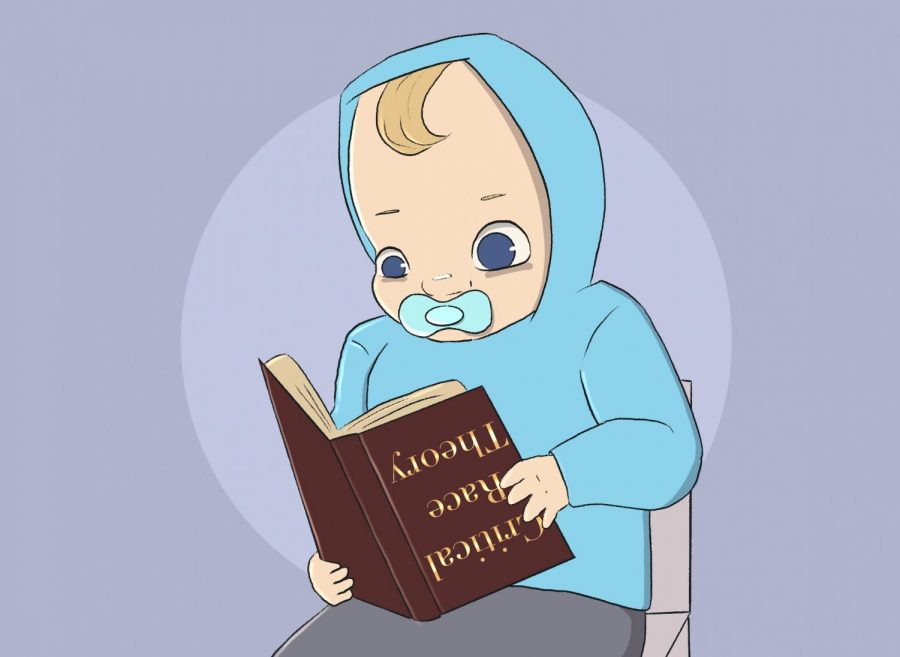Critical race theory is a non-issue
Only 8 percent of high school seniors in the U.S. can name slavery as the primary cause of the Civil War
The U.S. is three steps ahead of the fight for racial justice – in a bad way. The basic understanding of our country’s history with slavery and its continued acceptance of racism should be the most pressing issue.
August 23, 2021
The Southern Poverty Law Center found in a 2018 investigation that racial history education across America is, in a word, failing.
The investigation produced many alarming statistics, but perhaps the most frightening one was the discovery that only 8 percent of high school seniors surveyed in the investigation could identify slavery as the primary cause of the Civil War.
Dalton Cardoso, junior social studies major, attended high school in Vancouver, Washington, and concurred that his high school education was severely lacking in racial history.
“We never really talked about racial history or anything like that,” Cardoso said. “There was nothing, really, we never really focused on anything like that. It was always just general history and stuff like that.”
Cardoso also mentioned that regarding his education on the Civil War, his class mostly discussed important dates and timelines. The numerous social intricacies of the war – including the cause – were pretty much neglected.
With such striking inadequacies in the way we teach racial history in the U.S., the emergence of the latest political hot topic, critical race theory, is something of a mystery.
CRT was coined by legal scholar Kimberlé Crenshaw in the 1970s. The concept as a whole is far too complex to define in a single sentence, but the core principle is that racism is embedded in the very structures that make up society – it is pervasive, systemic and codified in our laws.
To be frank, however, the definition of CRT is irrelevant. What is important to know is that it is not taught in many public schools in America.
For one thing, nearly all scholarship on CRT is written for and by legal scholars, and is totally inaccessible for K-12 students.
Robert Eddy, WSU English writing and rhetoric professor, said the idea of CRT being taught at the K-12 level is both “silly” and “manipulative.”
“K-12 education of our children and young adults should of course include the deep study of systemic racism in sustained ways, but there is no reason to include the focuses of a law school course in K-12,” Eddy wrote in a personal statement regarding systemic racism.
The vast majority of students coming back to WSU this fall will probably never take a class that covers CRT during their time here.
Even Cardoso, who said he made an active effort to enroll in classes teaching ethnic history and centering non-white voices, said he had only been taught certain elements of CRT. He has never had a college course with a curriculum based entirely on the principles of CRT.
Many critics of CRT claim that its teachings instill a sense of misplaced guilt in white people who didn’t create any existing systems of oppression. Whether this is actually the case is debatable, as is how white people should be channeling any possible guilt.
According to Eddy, guilt has no place in the conversation.
“When I have to deal, early in the semester, with individual white members of my courses who are exhibiting white guilt, I say the following about that: ‘Look, I didn’t create system racism, [you] didn’t create systemic racism, so you have nothing to be guilty about,’” Eddy said.
Cardoso said he takes a different approach, framing guilt as the first step in seeing the problem.
“I don’t think [guilt] is bad because feeling guilty means you know it’s bad,” he said.
While this may be true, the problem with the idea of “white guilt” (and many other counterarguments against racial education) is that it puts white people at the forefront of conversations about how racial justice should be taught.
An important reason for teaching about racial issues in the first place is ensuring that white privilege is no longer the cornerstone of history and policy. When every conversation about how and what to teach is about “white guilt” and white people’s comfort, the purpose of the education is defeated.
Teaching racial issues is never going to be comfortable for any race. Nor will it be comfortable at any age.
At the K-12 level, some form of racial justice education is critical. There is nothing protecting children of color from experiencing racism, so there is no reason to object to white children learning about it.
And no – children do not, and probably should not, learn about the extremely advanced and complex legal idea that is CRT.
For college students, I can only urge each of us to make the choice to continue learning.
Our college experience is ours to make, but it is also often the first time we get to witness how interconnected each of us is with each other. In this way, it might also be the first time we get to see oppressive systems in practice.
Regardless of personal history, political views or even major, as we kick off this fall semester, don’t be afraid to become uncomfortable with the world around you. Seek out new opinions and ideas that might contradict what you think and challenge how you define your place in the world – maybe even look into CRT.










